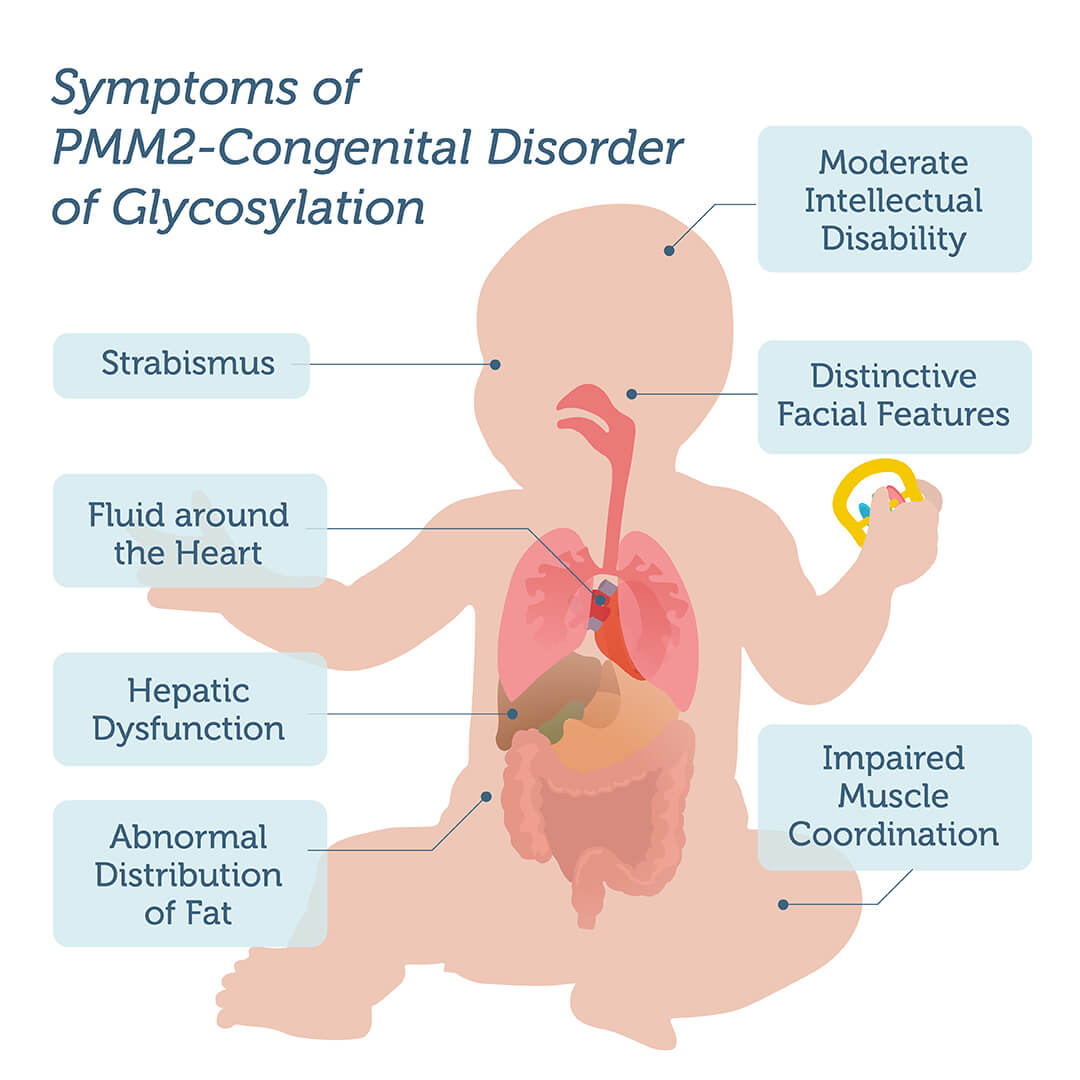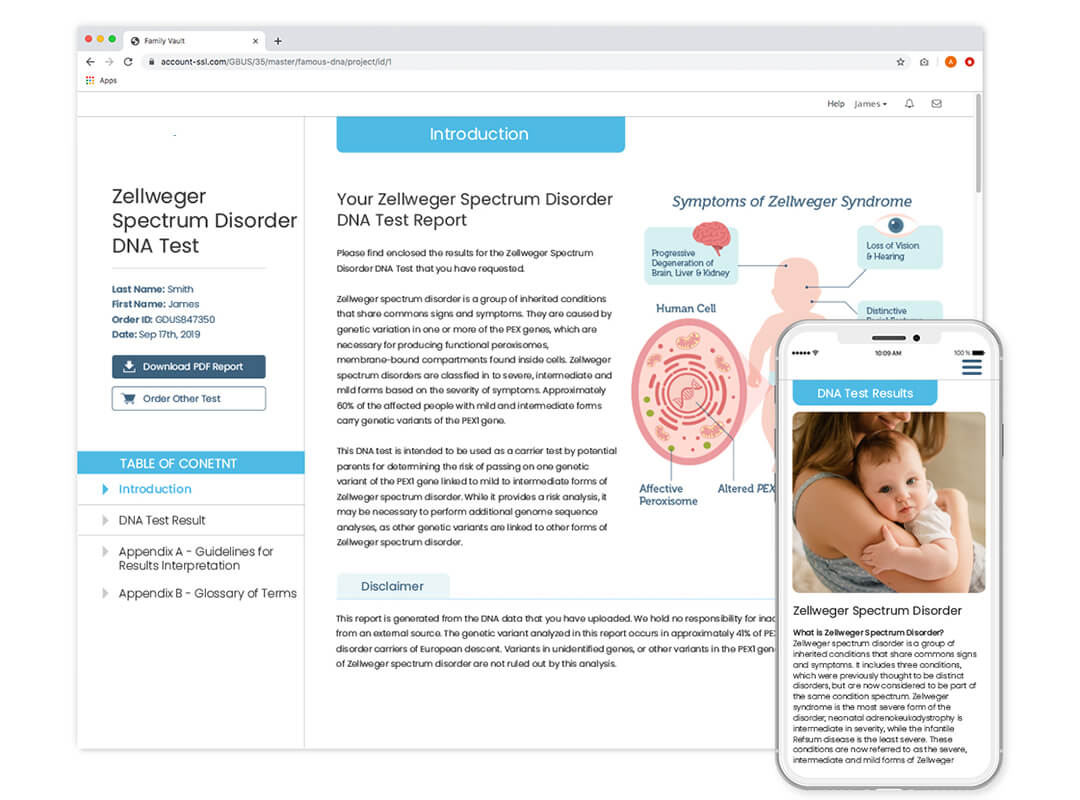Zellweger Spectrum Disorder
Are you a genetic carrier for Zellweger Spectrum Disorder? Find out with this DNA Test.
- Detects the PEX1 gene variant
- Linked to mild and intermediate forms of Zellweger spectrum disorder
- Carrier screening test intended for couples who are planning to become pregnant
- 100% private and confidential online results
Already have DNA markers? Sign in and upload your data to view results.
Need to take the DNA Test? Order our easy-to-use swab kit.
Detailed Description
Zellweger spectrum disorder is a group of inherited conditions that share commons signs and symptoms. It includes three conditions, which were previously thought to be distinct disorders, but are now considered to be part of the same condition spectrum. Zellweger syndrome is the most severe form of the disorder; neonatal adrenokeukodystrophy is intermediate in severity, while the infantile Refsum disease is the least severe. These conditions are now referred to as the severe, intermediate and mild forms of Zellweger spectrum disorder.
Zellweger spectrum disorders are caused by the reduction or absence of functional peroxisomes, membrane-bound compartments found inside cells. They hold enzymes necessary to break down different molecules including fatty acids and toxins. People with Zellweger disorders produce abnormal peroxins, which are proteins that assist in the formation of peroxisomes (peroxisome biogenesis). Without functional peroxisomes, cells are unable to produce fats used in digestion and in the nervous system, leading to symptoms of the disorder.
Take this test to find out whether you are a genetic carrier of the PEX1 variant and are at risk of passing it to your children. This is intended to be a carrier screening test for couples who are considering to start a family.

The Genetics
Zellweger Spectrum Disorders are caused by genetic variation in one or more of the PEX genes, which provides instructions to produce peroxins necessary for peroxisome biogenesis. Severity of symptoms depends on the number of functional peroxisomes. Those affected with the intermediate and mild forms of the disorder carry variants that allow some peroxisomes to form.
Approximately 60% of the affected people carry genetic variants of the PEX1 gene associated with the mild and intermediate forms. It isinherited in an autosomal recessive pattern, which means two defective copies of the PEX1 gene must be inherited in order for Zellweger spectrum disorder to manifest.

Variant Tested
This test looks at one genetic variant of the PEX1 gene linked to mild and intermediate forms of Zellweger spectrum disorder.
- rs61750420 T (G843D)
Understanding your carrier status will help you understand the risk of passing on Usher syndrome to your children. While a carrier do not typically show signs and symptoms of the condition there is a 25% chance the child will inherit the disease if both parents are carriers.
Signs and Symptoms
Characteristic symptoms include
- Weak muscle tone (hypotonia)
- Feeding problems
- Loss of vision
- Hearing loss
- Seizures
- Life-threatening problems involving other organs like the liver, heart and kidneys.
- Skeletal abnormalities
- Distinct facial features such as a flattened face, broad nasal bridges and a high forehead
How It Works
Step 1: Sign up for a free Genebase account.
Step 2: Upload your DNA markers to Genebase.
Step 3: Login to your account to access your results when they are ready.


